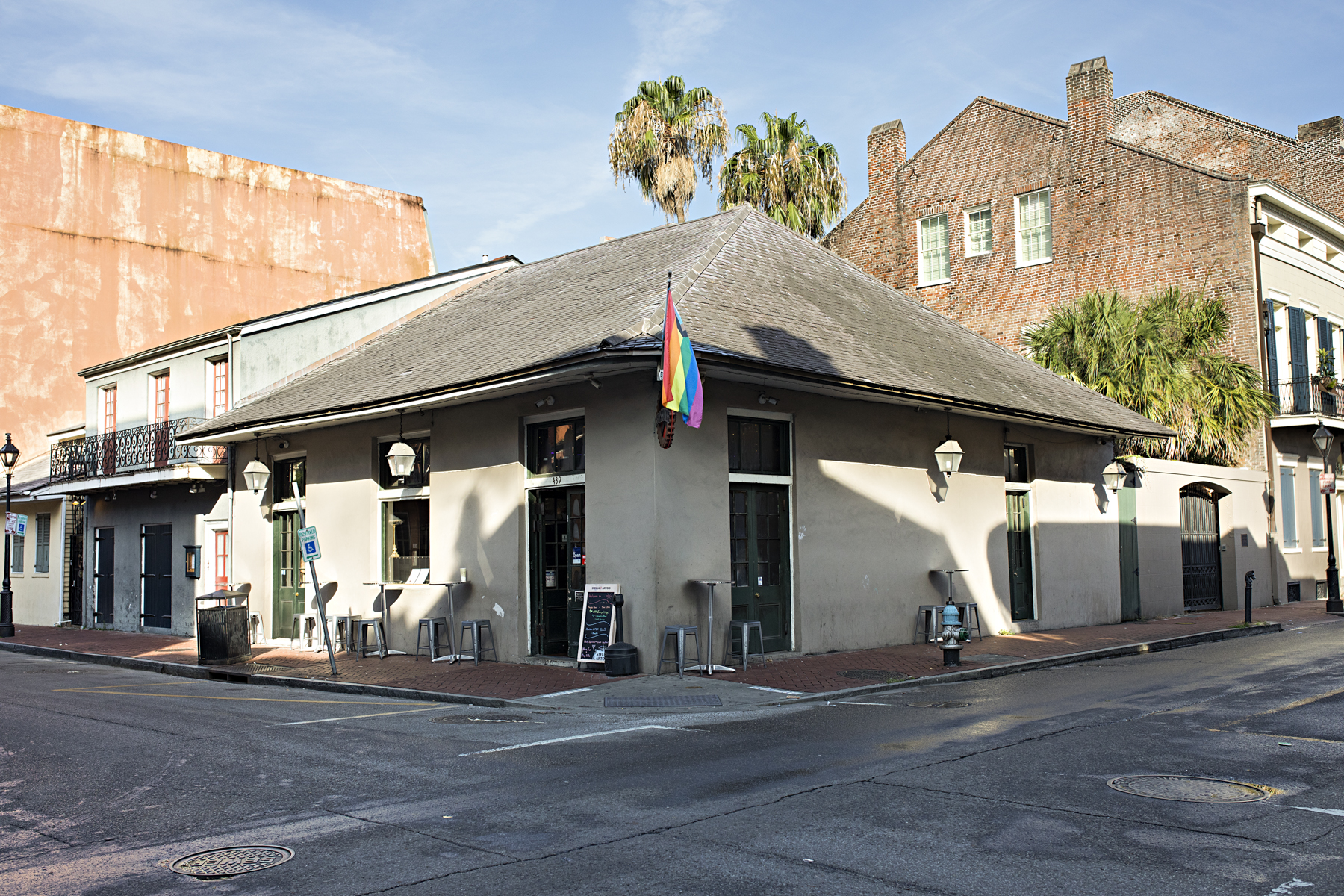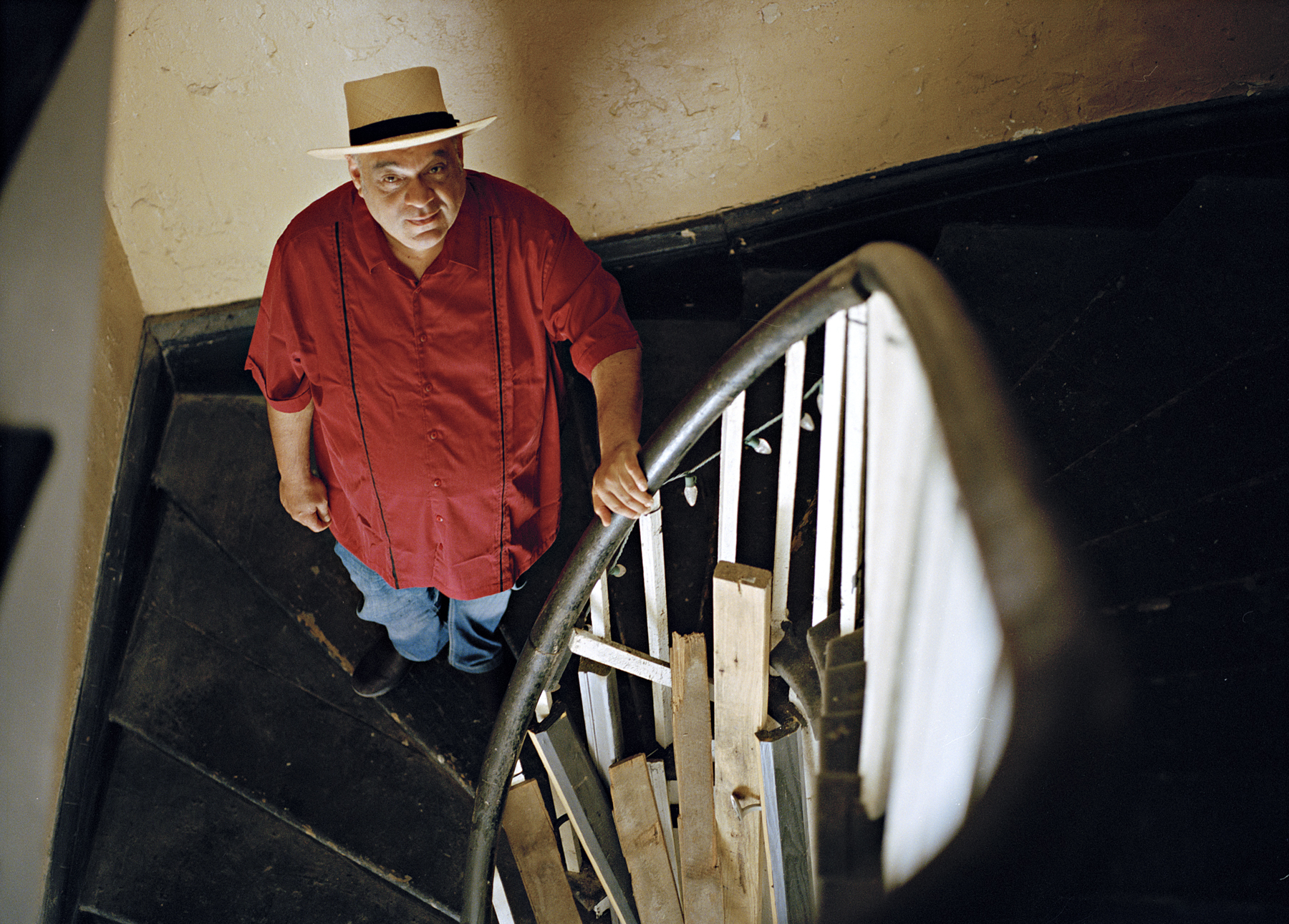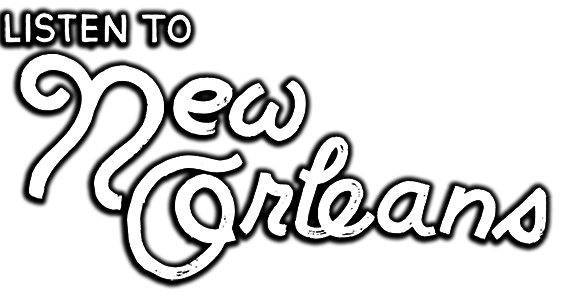“If you sat at that bar for a 24 hour period, you would get like five or six different slices of neighborhood life.”

Hey, this is French Quarter Frank. I was born in Baton Rouge. Had the good sense to get out of there as soon as I could, have been in New Orleans ever since. I'm a small business owner. I'm the president of a nonprofit organization. I'm a writer, a tour guide. I also teach part-time. I wear a lot of different hats. I live here in the French Quarter and I can often be found walking the Quarter. If you see a large Hispanic looking man with a straw hat, that's probably me.
There's just so many bars and restaurants and places that have come and gone in the French quarter but one that stands out to me is an old bar called the Double Play, which was located at 439 Dauphine at the corner of Dauphine and St. Louis. The building on that corner had been a bar for a long, long time. There were pictures from the 1950s, where you can see it was a bar. In the 1980s, it became a gay bar known as Gregory's. And it was a working class bar, which is to say it was not a highfalutin bar. A lot of working class people, a lot of sex workers, a lot of neighborhood regulars.
One time I remember sitting there and the payphone rang, they had a payphone on the wall and it rang for a little while until somebody finally answered it and called one of the regulars, a woman sitting at the bar, and they said, “It's for you.” It's like two o'clock in the afternoon. So she goes to the phone and picks it up and she says, "Not now dear mommy's drinking." And she hung it up. So, I mean, it was that kind of crowd and there would always be a couple of homeless people sleeping in the corner. So it was a very egalitarian kind of place. It was sort of a refuge for a lot of the people in the neighborhood that were not welcome in other bars. But you met the most wonderful people.
If you would go in the morning to the Double Play, there would be older men, neighborhood regulars, reading the paper, drinking coffee, chatting. As the day evolved into afternoon and early evening, you'd have more professionals popping in for happy hour. Then closer to nightfall, a lot of the dancers at the Corner Pocket would pop in because in order to dance at the Corner Pocket a block away, you had to pay a locker fee of $20, which you got back at the end of the shift. That was so they wouldn't leave in the middle of the shift, but a lot of them didn't have the $20, so they could come to the Double Play and work their angles and earn that $20, so that they could dance that night.
And so that little area, that two-block stretch kind of took on the nickname, “The Financial District,” which is kind of an interesting little note.
The later it got, and especially after midnight, it was a totally different crowd. It was a lot of service industry workers, but also trans women, many of whom were trans women of color and many of whom were sex workers. So the feel of the bar, if you sat at that bar for a 24 hour period, you would get like five or six different slices of neighborhood life.

Frank Perez aka French Quarter Frank in the French Quarter, 2021
(photo by Sarrah Danziger)
(photo by Sarrah Danziger)
